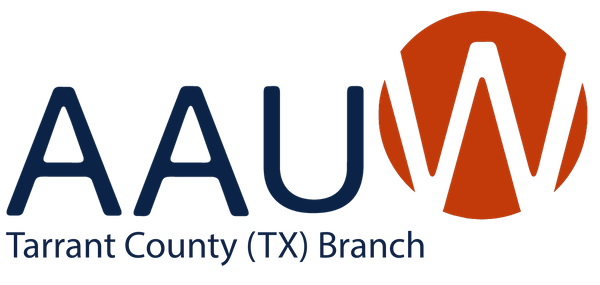VOTE !!! VOTE !!! VOTE !!!
AAUW’s policy work connects and rallies advocates at the local, state, national, and global levels to empower women and girls.
AAUW’s Public Policy Priorities, adopted every two years by every-member vote, establish the federal action issues on which AAUW members across the country focus their advocacy efforts and guide the work of the national staff.
AAUW ISSUES:
Economic Security
Advocacy
Leadership
Civil Rights
Reproductive Rights
Title IX
Health Care
Gender Pay Gap
VOTE !!! VOTE !!! VOTE !!!
- The Texas primary is March 6th. Early voting starts on February 20th.
- In Texas, voting in the primary may be even more important than voting in November. The candidates on the ballot in November are chosen in March.
- If you want to see candidates that support AAUW’s values to improve the lot of Texas’ women, you must vote in March. Fewer people vote in the primary, so your vote here has more impact.
- You may vote in either primary. Please study all the candidates carefully, and vote in the primary which gives you the most chance to influence the outcome of the elections in November.
- It is important to have candidates that support your values from both parties.
- If you vote by mail, you must tell which party’s primary you want to vote in.
- Remember, if there is a primary run-off, you may only vote in the same primary you voted in the first time. In November, you may vote for anyone on the ballot.
- To see who will be running for office in the area where you live, visit either http://www.vote411.org , the League of Women Voters guide, or https://apps.texastribune.org/2018-texas-primary-candidates .
- The League sent every candidate a questionnaire to give them an opportunity to tell you what they stand for – and against. Many candidates did not avail themselves of this opportunity. You may also visit the candidates’ websites and attend candidate forums.
– – – AAUW Tarrant County Brancy Public Policy Team
The fight against sexual harassment:
Kirsten Gillibrand’s Moment Has Arrived
Full Equity in Higher Education Remains Elusive
Women’s Equality Day, celebrated on August 26, marks the anniversary of the passage of
the Nineteenth Amendment, which granted women the right to vote. One battle we are still
waging is for women in education. AAUW estimates that due to disproportionate student loan burden and a longer debt repayment period, women currently hold almost two-thirds
of student debt in the United States. Read more…
Photo: Student debt protest. Image by Ryan via Flickr Creative Commons
Reflecting on the First AAUW Lobby Day

With our 49th AAUW National Convention coming up this June, take a minute to look back at our very first Lobby Day. This takes us back in time to 1989 and the 35th AAUW National Convention, where the theme that year was “Choices, Changes, and Connections.”
Read more.
Vouchers Destroy Free Public Schools
● Vouchers are unconstitutional.
● Vouchers drain $$ from FREE PUBLIC SCHOOLS that accept and educate every child.
● Vouchers discriminate against poor and special needs children. They don’t pay ALL costs.
● BEWARE of vouchers in disguise: School Choice; Education Savings Account; Parental Choice; Tax Credit Scholarships; Education Reform.
FREE PUBLIC SCHOOLS ARE EVERY CHILD’S RIGHT!
Find your Congressional and State Representatives here: Who Represents Me?
 School vouchers* provide taxpayer funds to parents to help finance the costs of sending their children to a private, for-profit, or parochial school instead of their community public school.
School vouchers* provide taxpayer funds to parents to help finance the costs of sending their children to a private, for-profit, or parochial school instead of their community public school.
AAUW has long opposed the practice of diverting public funds to voucher programs. Instead of funneling federal taxpayer dollars away from public schools and into private schools, Congress and states should invest these funds in the public schools that serve ALL students regardless of gender, disability, economic status, or educational achievement.
Private voucher schools do not provide the same civil rights to students as do public schools, including Titles VI and IX of the Civil Rights Act, Individuals with Disabilities Education Act and the Every Student Succeeds Act. Additionally, private and religious schools are not required to meet basic accountability standards, such as open meetings and open records laws or public release of test scores or dropout rates, so taxpayers do not know how their tax dollars are spent.
Referring to vouchers as ‘school choice’ options is misleading. Schools that accept vouchers are not required to admit ALL students. Billed as help to low-income students, children with disabilities, or families assigned to a failing public school, most vouchers do not cover full tuition or fees, making it impossible for many low and middle income families to afford these schools. Vouchers do not help in rural areas, where families usually do not have other options. Vouchers disproportionately assist families with children already in private schools.
Additionally, repeated studies of voucher programs indicate that vouchers do not result in better outcomes for students.
Our nation’s public schools — which educate 90 percent of our students–already face significant inadequate funding issues, including teacher shortages, overcrowded classrooms, fewer classroom aides and increased accountability.. Vouchers divert precious taxpayer dollars away from public schools at a time when most states have cut education funding.
Our country’s ability to provide a workforce that is locally and globally competitive depends on making public schools stronger, not draining much-needed dollars to unaccountable private or parochial school programs that discriminate against our most vulnerable students. _____________
*Sometimes referred to as scholarships, certificates, school choice programs or tuition tax credits, these are all, in fact vouchers.
Information in this article came from the following resources:
**2016 U.S.Government Accountability Office Private School Choice Programs Are Growing and Can Complicate Providing Certain Federally Funded Services to Eligible Students.
**School Vouchers and Students with Disabilities: Examining Impact in the Name of Choice, published by the Council of Parent Attorneys and Advocates, June 2016
**Center on Budget and Policy Priorities 2015 report Most States Have Cut School Funding, and Some Continue Cutting.
**AAUW Outlook (winter 2017 )

